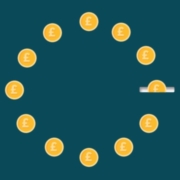Frontline services and public procurement post-Brexit
Frontline services are delivered utilising a number of mechanisms. There are those which are delivered directly and in-house by local authorities. There are those which are externalised and outsourced to often large private sector organisations. And there are those which are delivered through alternative models including Mutuals and Trusts.
What is however common regardless of the delivery model is the process of public procurement. In-house models will need to procure goods and services to enable efficient and effective delivery; and outsourced and alternative models will need to go through a procurement process to be able to deliver the service in the first place. They will also themselves need to buy goods and services to deliver.
Historically, the process of procurement has been characterised by bureaucracy, rigidy, complexity, and compliance. Procurers have often made decisions based around pre-defined criteria and with the price of the good or service the primary decision-making factor, along with a little bit of consideration of quality. What this has led to is a process which is transactional and shrouded in rules and regulations; and often due to the emphasis on price an inability to consider wider issues.
In the last five years, legislation and regulations around public procurement have started to change. In England, the Public Services (Social Value) Act was introduced in 2012, with an emphasis upon encouraging procurers of services to consider how the good or service being procured could consider and contribute towards addressing wider social and environmental challenges. This meant that cost only criteria in procurement could no longer be the norm.
In wider European legislation around procurement, the 2014 refresh of EU Procurement Directives brought three very important phrases or considerations to the fore when it came to public procurement. First, they talked around the importance of flexibility in the process and particularly reducing some of the burden associated with procurement for lower value contracts. Second, they recognised that more Small to Medium Sized Enterprises (SMEs) should be delivering public contracts, given their scale and importance to the functioning of the economy. Third, they recognised that procurement should be utilised to enable the achievement of wider social and environmental goals.
As a result of this legislation and other cultural shifts, the behaviour of procurement officers has slowly started to change. Procurers are beginning to more effectively understand the impacts of their spending choices upon local economies and are increasingly considering social value as part of the process. This is happening not only in the UK, but across Europe as the EU Directives are transposed into national level law. In the UK however, we have Brexit on the horizon, and I believe that is an opportunity to re-think how we do procurement for social and environmental benefit. I think there are three main areas of opportunity for public procurement in a post-Brexit environment.
Area one is that there is a real opportunity for Central Government to get its house in order when it comes to public procurement. In recent years, central government have developed legislation around social value which has been implemented at the local level, but have not embedded such considerations into their own processes and practices. Additionally, there have been soundings around the importance of utilising SMEs to deliver central government contracts; however, targets have been consistently missed. I would argue that there is a need for ‘beefed up’ social value legislation post Brexit which is applicable to local places AND central government.
Area two is that there is a real opportunity to think about the whole process of procurement differently. Procurement is a cycle which consists of six stages. There is strategy which identifies how procurement is undertaken. There is commissioning where good and services are designed. There is tendering where the market responds to a requirement and decision-making where the ‘winning’ supplier is identified. There is delivery of the good or service. And there is monitoring. I would argue that procurement does not always consider all these stages and rushes to tendering and decision-making – we need to be more cyclical in how procurement is approached post-Brexit.
Area three is that there is a real opportunity to embed social value across the entirety of the cycle described above at the local level and across all procurements, regardless of their size or scale or nature. In any good or service commission there therefore needs to be consideration of:
• What social value outcomes can the good or service contribute towards?
• How social value can be considered as part of the design stage?
• What questions can be asked around social value in tendering?
• How social value can be weighted as part of decision-making?
• What can be done to hold suppliers to account around social value in delivery?
• How social value can be monitored and reported?
Frontline services, regardless of how they are delivered, should be thinking about how they can progress the process of procurement so that it delivers a wide array of outcomes. If we are going to get more out of procurement post-Brexit we need to change cultures and think about social value as integral to the approach and not an add-on.
Matthew Jackson is the Deputy Chief Executive of the Centre for Local Economic Strategies (CLES). This article has been framed by the CLES publication: Opportunities for Public Procurement Post- Brexit.


.png)



.png)